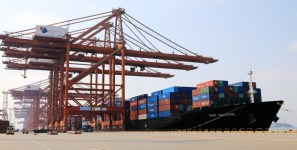Budapest Airport Strategy to Increase Trade with Asia
Increased direct freighter and belly cargo routes are just a couple of the initiatives of the soon-to-be implemented strategy for Budapest Airport, according to a release this week. The strategy serves as a tandem effort with the BUD20:20 expansion programme.
“China plays a major part in our BUD:2020 growth programme, and we are working together with some of the country’s largest logistics and transport companies to meet rising demand for imports from China,” said René Droese, Executive Director Property and Cargo, Budapest Airport.
“The new freighter routes launched this year complement our existing direct and indirect scheduled freighter and belly cargo connections with China operated by Air China, Cargolux, Emirates, Qatar Airways Cargo, and Turkish Cargo. The forwarder community in our region is seeking new ways to reach the Asia market; in addition to this we are witnessing an increasing demand from Chinese e-commerce companies for new, efficient distribution hubs in Eastern Europe, which amounts to a unique opportunity for us.”
Another part of the strategy directly involves the Hungarian hub and increasing e-commerce initiatives. The airport saw a 22.9 percent increase in the volume of flown and trucked freight from October 2017 – 2018. Air cargo volumes flown at the BUD increased by more than 60 percent from 2015-2018. These growth rates are anticipated to continue with the recently disclosed strategies.
“We are witnessing historic moments in China; it was precisely 40 years ago that the Chinese Central Government, led by Deng Xiaoping, introduced the policy of opening the economy to foreign direct investment,” said Szilárd Bolla, the Consul General of Hungary in Shanghai. “Now, the government of Xi Jinping would like to call the attention of global players to the dynamically growing Chinese internal market. The quality of current diplomatic relations between the two countries and this momentum create an excellent opportunity for Hungarian businesses to enter the market.”
Source: Meantime Communications





Leave a Reply